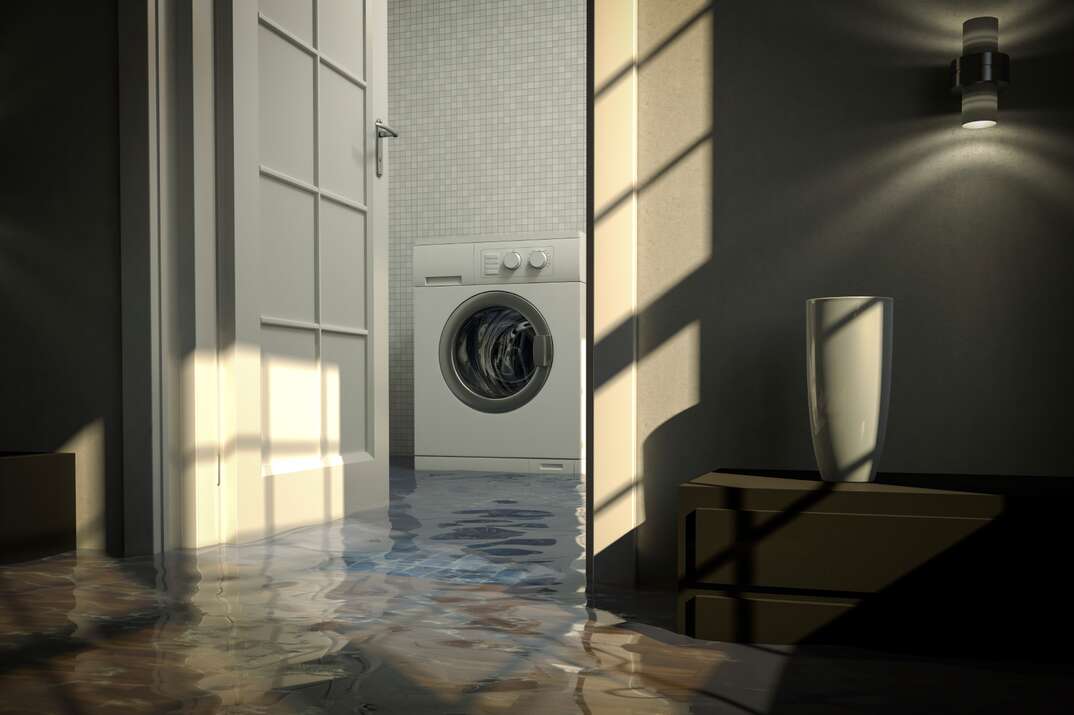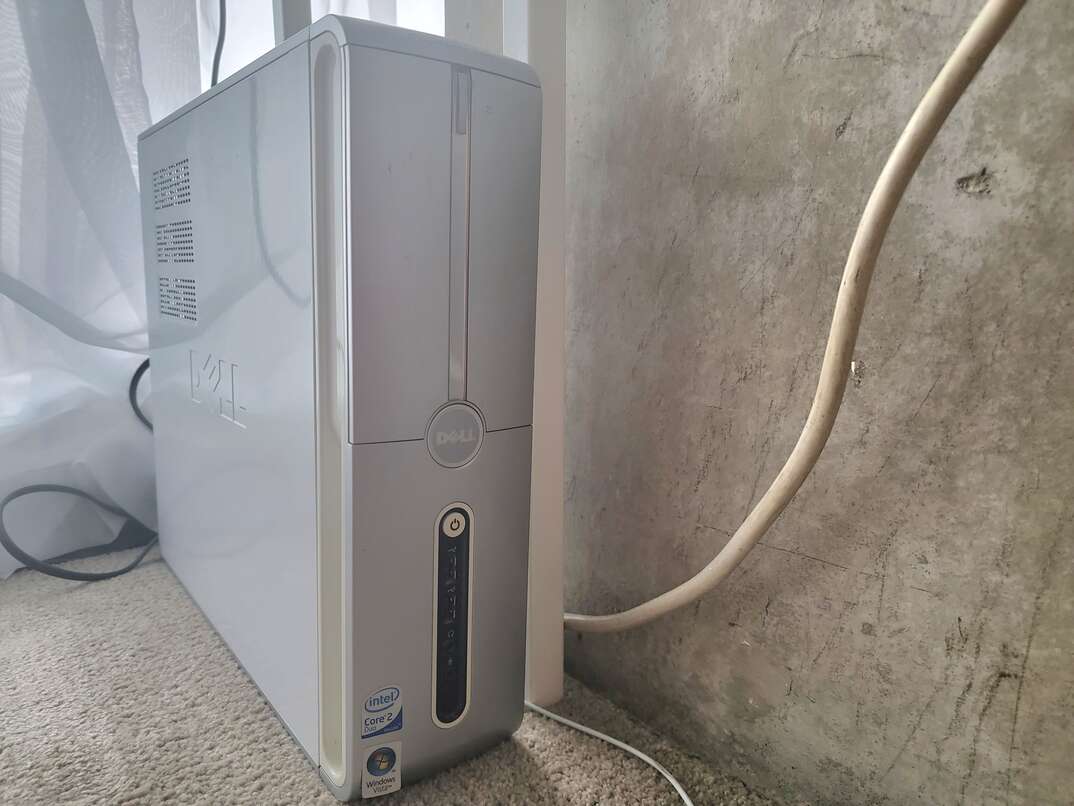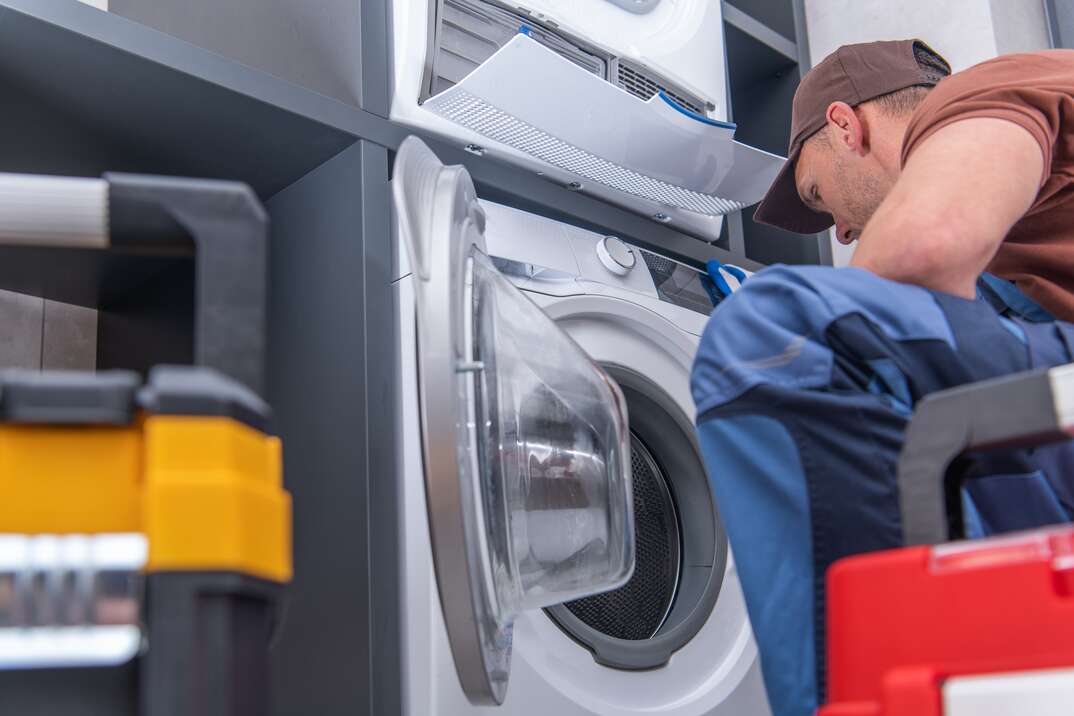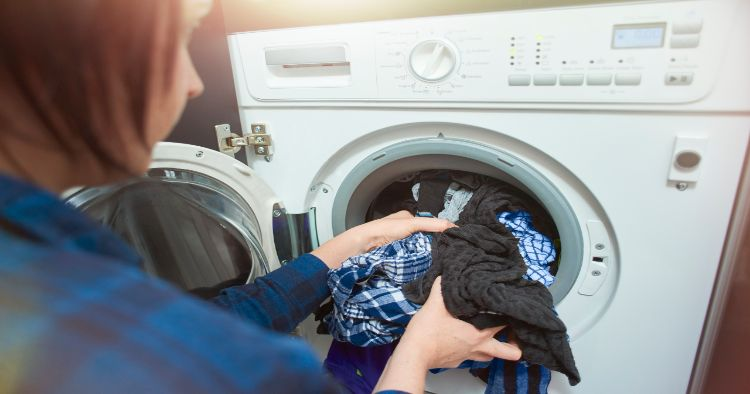Why Is My Washing Machine Leaking?

Nobody looks forward to a washing machine leak any more than they look forward to doing laundry day in and out. But if you own a washing machine, you may have to deal with one at some point. If you’re paying careful attention, you may be able to spot the beginnings of a leak before it gets too serious.
This May Also Interest You: Pros and Cons of Stackable Washers and Dryers
So, what causes a washing machine leak? Here’s what to look for — and how to fix the problem before you’re left with a huge puddle on the floor.
Locate the Leak
The first step in figuring out why your washer is leaking is to try and hone in on where the leak is coming from. This sounds simple enough, but it can actually be a little tricky.
For one thing, if your floor isn’t level, the water may be running toward the lowest point of your laundry space, which can throw you off. Keep the level of the floor in mind as you investigate, and also check to see if the washer itself is level. If not, you can usually adjust the feet of the washer to remedy this.
When it comes to washing machine leaks, there are three main spots where leaks are likely to originate: around the door of the washer, under the washer or, most likely, from the back of the machine. Note that, with all of these leaks, it can seem as though the washer is leaking from the bottom, as water may settle there regardless of where it originates.
The Most Likely Suspect: The Drain Hose
If your washing machine is leaking from the back, the issue is probably with the drain hose. Often, a leak at the back of your machine happens when the drain hose isn’t properly secured to the drainpipe or the back panel of the washer.
It could also be that the drain hose is split or cracked somewhere. If the leak persists, you’ll want to check for any damage to the pipe itself. A too-small drain hose could also cause a leak, so make sure yours is the proper size for your washer’s capacity.
Tried all these things, and the leak is still there? Check that the drain hose isn’t clogged. To fix a clogged drain hose, try mixing boiling water with vinegar or baking soda and pouring it down the drain.
A Less Likely Culprit: Broken or Faulty Tub Seal
Why would a washing machine leak from underneath? The answer could be a faulty tub seal. If you notice your leak happening during the rinse cycle, then a tub seal is very likely to blame.
Replacing the tub seal isn’t terribly expensive, and you can do it yourself. But you will have to remove the basket, and you may have to turn the washer over, so be prepared to ask someone to assist you with the awkward maneuvering.
More Related Articles:
- Here’s Why Your Washing Machine Is Making Noise
- How to Clean a Washing Machine Drain
- Should You Repair or Replace Your Washing Machine?
- Here’s How to Change the Direction the Door Swings on Your Washer and Dryer
- How to Move Your Washing Machine
Front-Load Specific Leaks
When troubleshooting a leak, it’s also important to consider the type of washer you have, as leaks can manifest differently in top-loading and front-loading machines.
For example, door leaks are more likely in front-loading machines simply due to their build.
If your front load washer is leaking from the door, it could be because your washer is off balance or overloaded. Make sure you don’t haven’t overfilled the wash basket and check that the washer is level so as to prevent excess wobbling mid-cycle.
Another cause for a leaking door could be the seal around the door itself. Check to ensure it isn’t torn or detached and replace if necessary.
Signs a Washer May Fail or Leak
Although paying extra attention to your washer’s behavior might not prevent all leaks before they start, it can certainly help lower your risk of being stuck with a major leak situation.
Be on the lookout for any signs of your washer working less effectively. This could be a precursor to a leak. Also, make sure that your washing machine is level and not wobbling around mid-cycle. The extra agitation could lead to a leak down the line. You also want to ensure that all pipes remain securely fastened and clog-free.
Lose the Leak
Regardless of the size or origins of any leak, there’s no way around it: Leaks need to be nipped in the bud as soon as possible to avoid damage to both your washer and your home. But with proper care and attention, you can keep your washer running in top form, and you may even avoid having to face a leak altogether. So instead of asking why your machine is leaking again, you’ll have precious time to spend on throwing in yet another load of laundry.
What joy!


